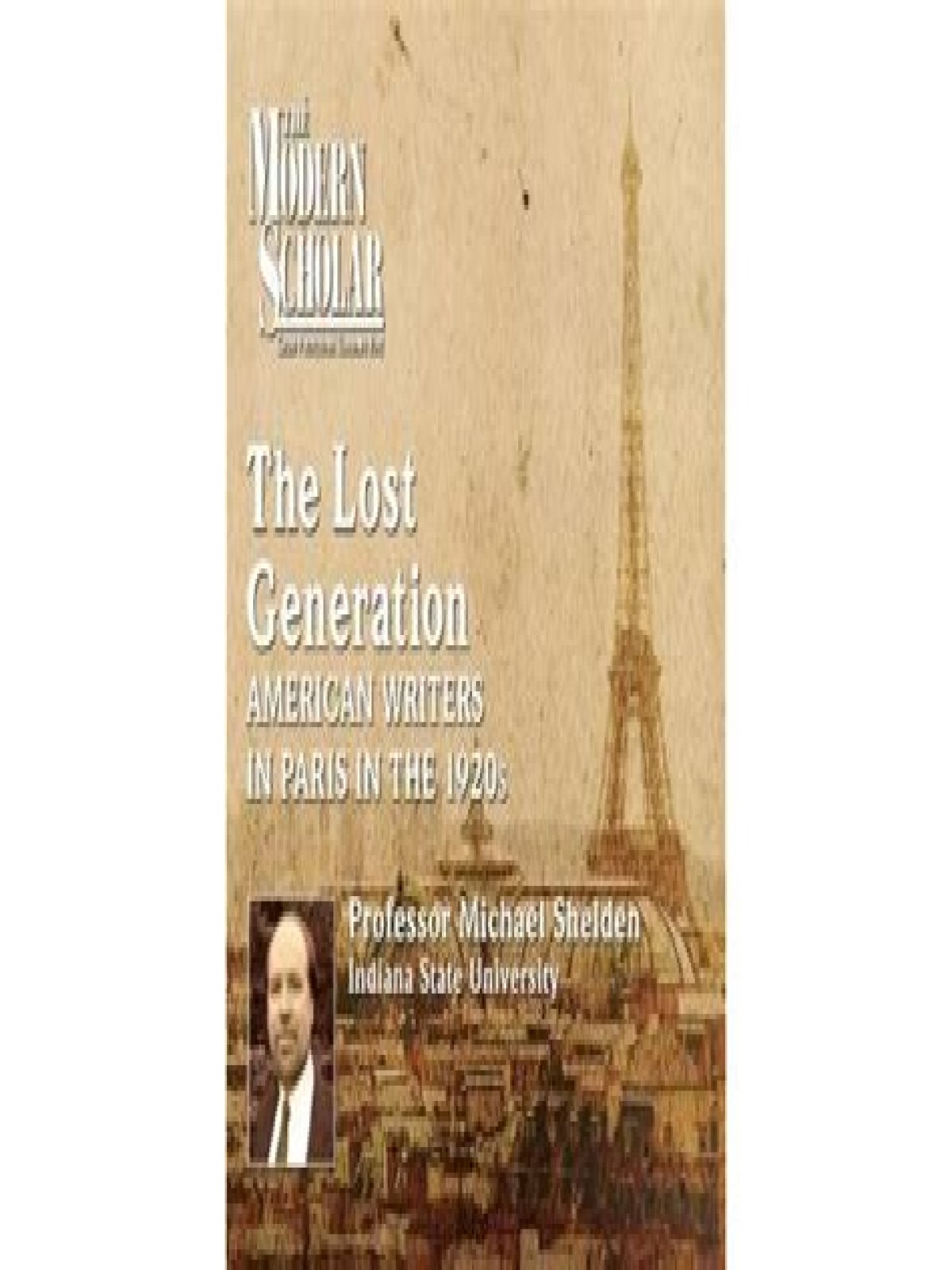A group of American writers following WWI. They were “lost” because after the war many of them were disillusioned with the world in general and were unwilling to move into a settled life. Gertrude Stein is usually credited with popularizing the expression.
The generation was “lost” in the sense that its inherited values were no longer relevant in the postwar world and because of its spiritual alienation from a United States that, basking under Pres. Warren G.
Why is the lost generation called the lost generation?
The Lost Generation was the social generational cohort that was in early adulthood during World War I. “Lost” in this context refers to the “disoriented, wandering, directionless” spirit of many of the war’s survivors in the early postwar period.
What is lost generation in American literature?
Though first intended to denote Americans brought to Europe by the First World War, the “Lost Generation” refers to writers and other artists from the United States who took up residence in Paris in the 1920s and 1930s. The words themselves were first attributed to Gertrude Stein by Ernest Hemingway.
How did the writers of the Lost Generation describe the United States of the 1920s?
The Lost Generation refers to the generation of writers, artists, musicians, and intellectuals that came of age during the First World War and the “Roaring Twenties.” The unprecedented carnage and destruction of the war stripped this generation of their illusions about democracy, peace, and prosperity, and many
Why was the 1920s called the Roaring Twenties quizlet?
The Roaring Twenties are called “roaring” because of the exuberant, freewheeling popular culture of the decade. The Roaring Twenties was a time when many people defied Prohibition, indulged in new styles of dancing and dressing, and rejected many traditional moral standards.
Why was the 1920s called the Roaring 20s?
Many people believe that the 1920s marked a new era in United States history. The decade often is referred to as the “Roaring Twenties” due to the supposedly new and less-inhibited lifestyle that many people embraced in this period.
Why was the Lost Generation important?
The Lost Generation made an impact on society because the writings that came out of this period showed the effects war has on people. War was a terrible hing that made men lose their masculinity, gave people a sense of disillusionment, and made people want to return to a simpler, idealistic past.
What did Lost Generation writers criticize?
Writers felt that the old norms were no longer relevant, the old ways of writing no longer relatable. They criticized what the country had become after losing a sense of hope in the war, and how its people, among other things, felt lost. Making sense of things, for them, was a frustrating exercise.
How does the Lost Generation relate to the Great Gatsby?
One of the most notable works from the Lost Generation is F. Scott Fitzgerald’s The Great Gatsby. Published in 1925, this novel tackles the slow and painful death of the American Dream amidst the corruption running rampant through the frivolous nature of the wealthy.
How did the writers of the Lost Generation respond to the popular culture?
How did the writers of the Lost Generation respond to the popular culture? – American society in the 1920’s troubled some writers who believed that materialism occupied many Americans. -These people left for Europe and found it more intellectually stimulating. What subjects did the Harlem Renaissance writers explore?
Which generation do you think is the poem addressing to the Lost Generation?
I connect to this poem, because I too want to make a change for the better in my generation. I want it to be named not the ‘mess up’ generation, but rather the ‘golden’ generation.
What was the generation before the Lost Generation?
Generally speaking, the Greatest Generation are the parents of the “Baby Boomers” and are the children of the “Lost Generation” (those who grew up during or came of age during World War I). They preceded what is known as the “Silent Generation,” a cohort born between the mid-1920s to the early-to-mid 1940s.
What caused disillusionment among writers in the 1920s?
Briefly explain ONE development that caused the disillusionment among writers in the 1920s. The expansion of harnessable electricity caused a newfound materialism among Americans. This disillusioned many authors known as the “lost generation.”
What did the Lost Generation writers express in their works?
What did the Lost Generation writers express in their works? They expressed feelings of disillusionment with American society, which they felt denied them a voice in their own futures.
What is the 1920s known for?
The 1920s was the first decade to have a nickname: “Roaring 20s” or “Jazz Age.” It was a decade of prosperity and dissipation, and of jazz bands, bootleggers, raccoon coats, bathtub gin, flappers, flagpole sitters, bootleggers, and marathon dancers.
Why were the 1920s called the Jazz Age quizlet?
The 1920s is referred to as the Jazz Age because this time period was when the musical genre Jazz became big along the population. It was a type of upbeat music and people thought that this type of positive music described the booming economy so well that they called it the Jazz Age.
Why are the Roaring Twenties a unique period in American history?
Terms in this set (8)
Why are the Roaring Twenties a unique period in American history? They were a mixture of extreme highs and lows. How did the American public recieve these two new amendments? Women Felt Liberated by the 19th Amendment and many joined against the other.
What was the result of new innovations in the roaring 20s?
To help them enjoy their new lives new technologies such as the radio, silent movies and Henry Ford’s automobile industry were invented. After WWI, America bathed in economic prosperity, allowing them to enjoy more leisure time and technology. People were getting richer and began to spend more money.
